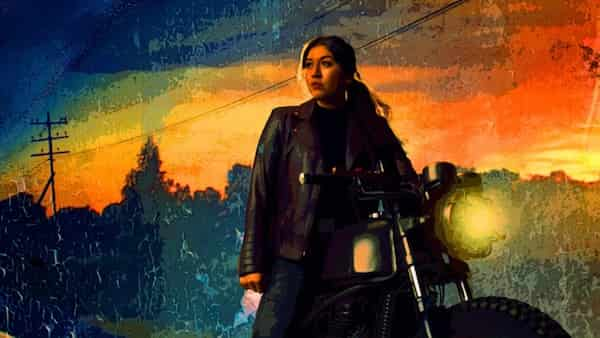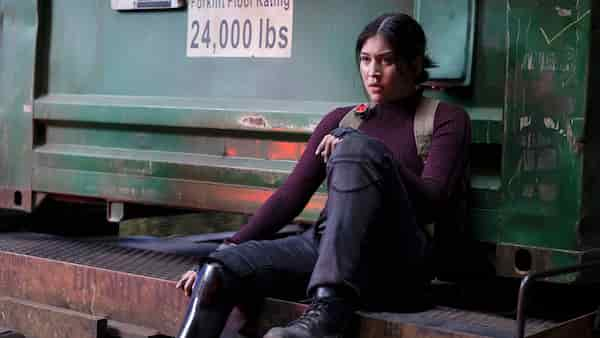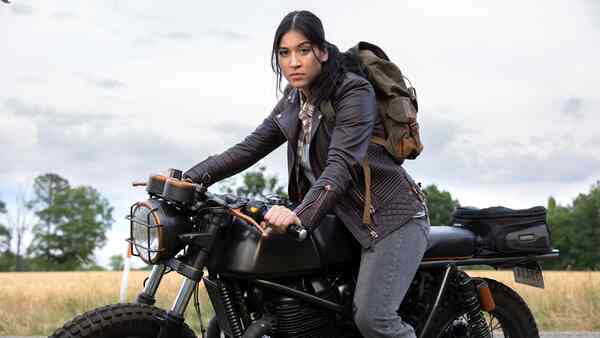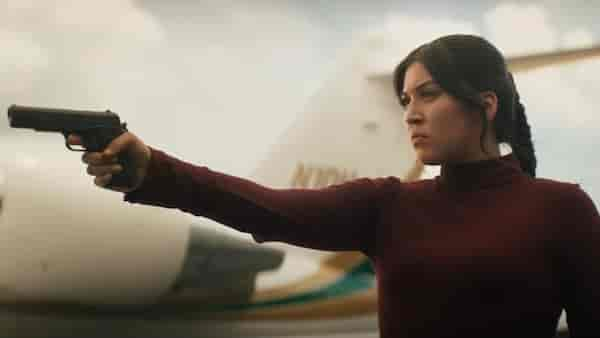Marvel's Echo: A Conscious New Departure From Usual MCU Fare
Telling a more grounded story, one rooted in indigenous traditions, may feel like a step in the right direction for Disney’s once-invincible, now-crumbling enterprise.

Last Updated: 02.15 PM, Jan 23, 2024
This column was originally published as part of our newsletter The Daily Show on January 23, 2023. Subscribe here. (We're awesome about not spamming your inbox!)
***
THE season premiere of MCU’s 9999th(?) entry Echo opens with a flashback to the Choctaw creation myth; i.e. the Marvel TV version of it. The original legend spoke of Nanih Waiya, the mother mound from which the Native American tribe were said to have emerged centuries ago. The MCU retake shows us a people made out of clay, living underground, and led by Chafa (Julia Jones). When Chafa and the others drink from a magical blue pool, glowing symbols appear on their palms through to their arms, following which their underground home collapses around them to reveal a new world. Upon shedding their old skin and transforming into humans, the Choctaws are shepherded into the future — with a superpowered Chafa at the helm.
Generation to generation, Chafa’s powers continue to be inherited by a long line of Choctaw women. Like our hero Maya Lopez (Alaqua Cox). Throughout the five episodes of the show, Maya frequently experiences visions of her ancestors. But it is only by embracing her heritage and reconnecting with her family that she learns how to “echo” the abilities of her ancestors, and comes into her own. In the comics, Maya earns her moniker due to her photographic reflexes, meaning she can imitate the combat style of her opponents to gain advantage in fights. Shifting to a power tied directly to her ancestors allows for a fresher spin and a more self-contained story.

For a series that splits the difference between a comic-book actioner and a family drama, Echo may not be unbearably tense or smoothly pieced together. What makes it work nonetheless is a deeply personal character journey powered by Choctaw tradition. And what works in its favour is Navajo director Sydney Freeland and her bevy of screenwriters’ decision to narrow its focus, rather than suffocate it with its tenuous connections to a much larger mythology.
Being the first series to debut under the Marvel Spotlight banner, Echo seems like a conscious new departure from the usual MCU fare. Maya was first introduced as an enforcer for crime lord Wilson Fisk aka Kingpin in Hawkeye. Spinning off from the 2021 miniseries, Echo begins with a bulky catch-up on how Maya went from being a Fisk loyalist to shooting him in the head. We see Maya as a child growing up around cousins and family in Oklahoma; the death of her mother Taloa (Katarina Ziervogel) in a car crash forces Maya and her father William (Zach McClarnon) to move to New York; there he begins working for Fisk; years later, a post-Blip Clint Barton aka Ronin kills William; the vengeful Maya is recruited by Fisk who weaponises her anger so as to groom her as his enforcer; she kills and kills and rises up the ranks within the criminal organisation; Daredevil makes a brief cameo; then Clint, who makes her realise it was Fisk who orchestrated her father’s demise.

On the run after shooting Fisk, Maya returns to her hometown in Oklahoma, where she reconnects with her old cousins Biscuits (Cody Lightning) and Bonnie (Devery Jacobs), her uncle Henry (Chaske Spencer), and her estranged grandmother ((Tantoo Cardinal). Though hesitant at first to reconnect, she comes to realise her true strength lies in healing the broken bonds with her family and tapping into the power of her roots.
Each episode is named for a powerful Choctaw woman, starting with Chafa and ending with Maya. Episode 2 (“Lowak”) flashes back to 1200 AD, where Lowak (Morningstar Angeline) harnesses Chafa’s powers to win a game of stickball against another tribe, ensuring her own people won’t be exiled. Episode 3 (“Tuklo”) begins as a black-and-white silent short, transporting us to the late 1800s, where Tuklo (Dannie McCallum) wants to follow in her father’s footsteps and become a Lighthorseman. Women are life-givers, not life-takers, insists her father, putting the kibosh on her aspirations. But when her father and his posse run into an ambush, it is Tuklo who ends up saving them, after experiencing visions of Chafa and Lowak. In the season finale, Maya’s mother Taloa is shown to be a healer: she gets a fatally wounded woodpecker back on its feet with her glowing hands.

Once Maya learns to embrace her connection with all these powerful women, their powers echo through her, from Lowak’s smarts and deftness to Tuklo’s marksmanship and courage to Taloa’s healing and compassion. At the end, when Fisk inevitably returns and has Maya at a lethal disadvantage, she echoes her mother’s healing powers to get to the root of his pain, unearth repressed memories and ease his anger, even if only temporarily. Cox, who was born deaf like her onscreen counterpart, puts on a muscular performance of internal anguish, expressed via silences, stillness and the physicality of sign language. The direction regrettably is not as muscular; the choreography is slick enough but the action collapses into a jumble of anonymity; these problems are only compounded by the haphazard pacing. Telling a more grounded story, one rooted in indigenous traditions, may feel like a step in the right direction for Disney’s once-invincible, now-crumbling enterprise. The question still remains: how much more blood will Kevin Feige continue to squeeze from the Marvel stone?

 Premium
Premium